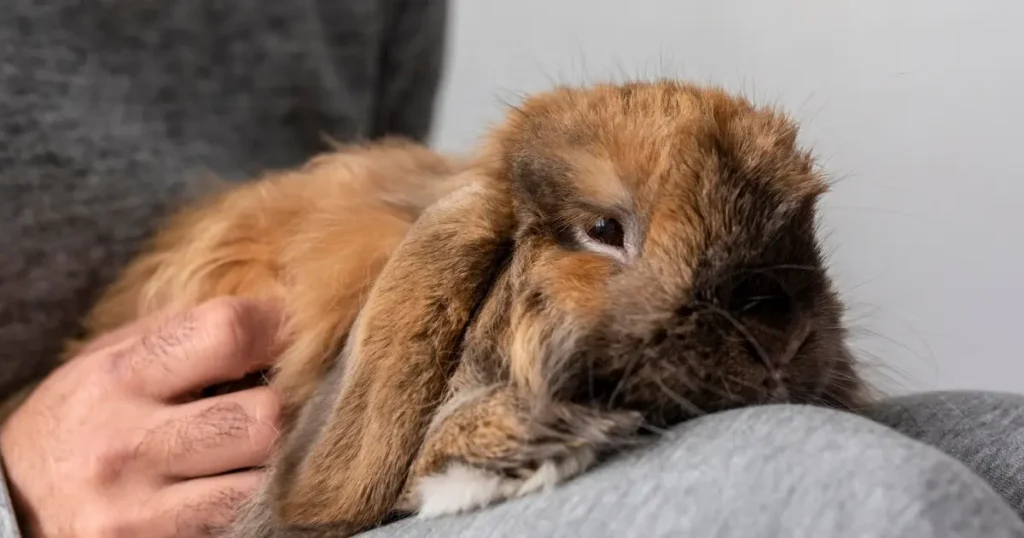Table of Contents
- Understanding Holland Lop : Average Life Expectancy
- Indoor vs. Outdoor Living: Impact on Holland Lop Longevity
- Essential Diet Requirements for a Long-Living Holland Lop
- Exercise and Physical Activity Needs
- Common Health Issues Affecting Holland Lop Lifespan
- Creating the Perfect Living Environment
- Preventive Healthcare and Regular Veterinary Check-ups
- Signs of Aging in Holland Lops
- Breeding History and Genetic Factors
- Mental Stimulation and Social Needs
- Environmental Stress Factors to Avoid
- Conclusion
- FAQ
Bringing a Holland Lop into your home means understanding their lifespan is key. These cute rabbits can live 7 to 12 years with the right care. Knowing what affects their lifespan is important for every pet owner.
Holland Lops are known for their floppy ears and small size. Knowing how long they live helps you plan for their care and health issues. Taking care of their unique needs can greatly improve their life and how long they live.
Good diet, regular vet visits, and a calm home are vital for your Holland Lop’s health. These small friends need your full attention to live their best years.
Key Takeaways
- Holland Lops typically live 7-12 years with proper care
- Genetics and environment significantly impact rabbit lifespan
- Regular veterinary check-ups are essential for long-term health
- Nutrition plays a crucial role in determining rabbit longevity
- Stress reduction can help extend your rabbit’s life expectancy
Understanding Holland Lop : Average Life Expectancy
Thinking about getting a Holland Lop as a pet? Knowing their life span is key to giving them the best care. Holland Lops usually live between 7 to 10 years. This makes them great long-term friends for rabbit lovers.
Several important factors affect how long a Holland Lop lives. These factors greatly impact their health and how long they live.
Factors Determining Holland Lop Life Expectancy
Many things influence a Holland Lop’s life span. Here are the most important ones:
- Genetics and breeding quality
- Diet and nutrition
- Living environment
- Regular veterinary care
- Exercise and mental stimulation
Wild vs. Domesticated Holland Lop Lifespans
Domesticated Holland Lops live much longer than wild ones. With good care, they can live up to 10 years. But, wild rabbits usually only live 1-2 years because of predators and tough environments.
Gender-Based Lifespan Differences
Gender can slightly affect a Holland Lop’s life span. Female Holland Lops might live a bit longer if they are spayed. This helps avoid health problems related to reproduction.
“A well-cared-for Holland Lop is a long-term companion that can bring joy for many years.” – Rabbit Care Experts
By knowing these factors, you can help your Holland Lop live a long, healthy life. This way, they can enjoy their full potential.
Indoor vs. Outdoor Living: Impact on Holland Lop Longevity
Choosing the right home for your Holland Lop is key to a long life. The choice between indoor and outdoor living greatly affects their health and how long they live.
Indoor living has many benefits for Holland Lops. They are safer from predators, extreme weather, and stress. Keeping them indoors lets you watch their health closely, manage their food, and give them consistent care.
- Stable temperature control
- Protection from predators
- Easy health monitoring
- Reduced environmental risks
Outdoor living comes with its own set of challenges for Holland Lops. While some think outdoor spaces are natural, the dangers often outweigh the good. Outdoor Holland Lops face:
- Predatory animals
- Extreme weather conditions
- Potential parasites
- Higher stress levels
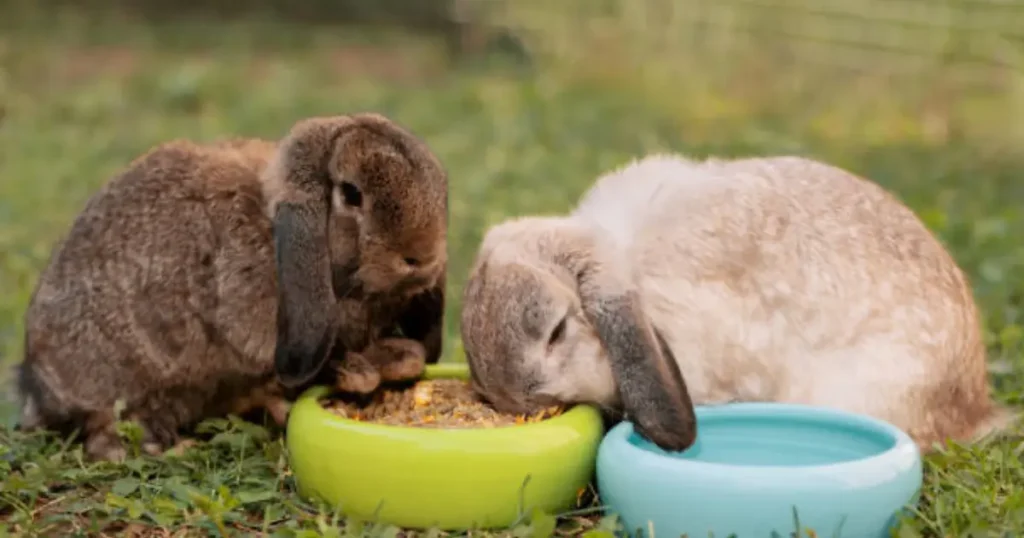
| Living Environment | Average Lifespan | Health Risks |
|---|---|---|
| Indoor | 8-12 years | Minimal |
| Outdoor | 5-8 years | Significant |
“The environment you choose can make a substantial difference in how to extend your Holland Lop’s lifespan.” – Veterinary Rabbit Specialists
So, do indoor or outdoor Holland Lops live longer? The answer is clear: indoor living is better. Controlled environments offer better food, consistent care, and less stress. These are all important for a long, healthy life for your bunny.
Essential Diet Requirements for a Long-Living Holland Lop
Nutrition is key to a long Holland Lop lifespan. Your bunny’s diet affects its health, energy, and how long it lives. Knowing the right mix of nutrients can greatly enhance your Holland Lop’s life.
Diet and exercise are great for a Holland Lop’s life span. A good diet gives the right nutrients, keeps your rabbit healthy, and prevents sickness.
Optimal Hay and Fresh Food Ratios
High-quality hay is the base of your Holland Lop’s diet. Your rabbit needs:
- Timothy hay as the main food
- 80-90% of their diet to be fresh hay
- Fresh veggies as extra nutrition
Harmful Foods to Avoid
Some foods are bad for your Holland Lop. Avoid:
- Chocolate
- Avocado
- Processed human foods
- Fruits high in sugar
Hydration Requirements
Keeping your Holland Lop hydrated is vital. Make sure they always have fresh, clean water.
| Daily Water Requirement | Amount |
|---|---|
| Average Adult Holland Lop | 50-100 ml per kg of body weight |
| During Hot Weather | Increase by 25-30% |
“A balanced diet is the cornerstone of a healthy, long-living Holland Lop.” – Veterinary Nutrition Experts
Watching and adjusting your Holland Lop’s diet is important. It helps keep your furry friend happy and healthy.
Exercise and Physical Activity Needs
Keeping your Holland Lop active is key for their health and long life. These cute bunnies need to move regularly to stay healthy and avoid obesity.
Holland Lops need daily exercise to keep their bodies and minds sharp. Even though they’re small, they have lots of energy and love to play.
- Recommended daily exercise time: 3-4 hours
- Best exercise methods:
- Supervised floor time
- Interactive toys
- Bunny-safe obstacle courses
Creating a fun exercise space is important for your Holland Lop’s health. Set up a safe area with tunnels, boxes, and chew toys. This will keep them moving and thinking.
“A active Holland Lop is a healthy Holland Lop” – Rabbit Care Experts
| Exercise Type | Benefits | Duration |
|---|---|---|
| Hopping/Running | Muscle strength | 1-2 hours daily |
| Climbing | Coordination | 30-45 minutes |
| Foraging | Mental stimulation | 45-60 minutes |
Every Holland Lop is different. Watch how your bunny likes to play and adjust their exercise to keep them happy and healthy.
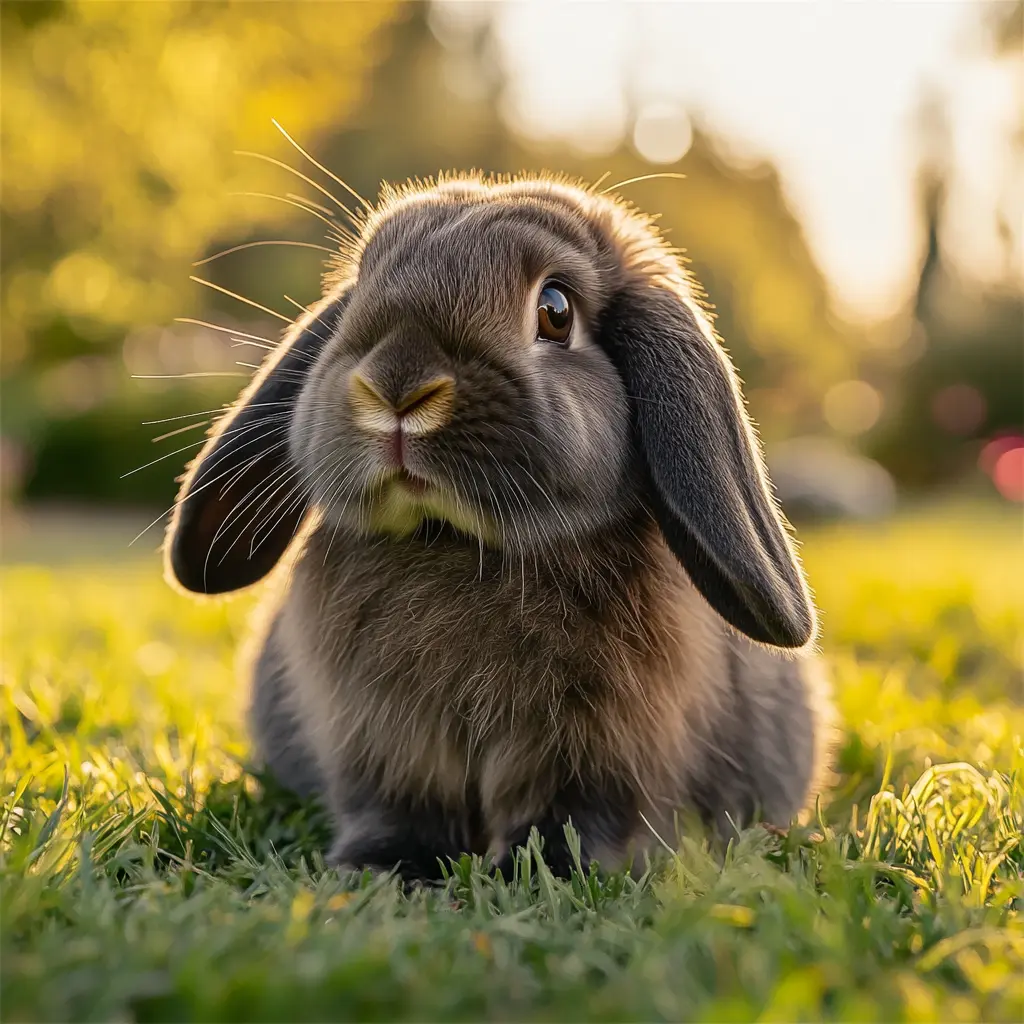
Common Health Issues Affecting Holland Lop Lifespan
It’s important to know about common health problems in Holland Lops. These cute rabbits can face many health issues that affect how long they live.
Keeping your Holland Lop healthy is a big job. Spotting health problems early can help your rabbit live a long, happy life.
Dental Problems and Prevention
Holland Lops often have dental issues because of their skull shape. They might have:
- Overgrown teeth
- Malocclusion (misaligned teeth)
- Tooth root abscesses
To prevent dental problems, you can:
- Take them to the vet for dental checks
- Give them lots of hay to chew on
- Use wooden chew toys
Digestive Issues to Watch For
Digestive problems can really hurt a Holland Lop’s health. They might have:
- Gastrointestinal stasis
- Bloating
- Intestinal blockages
“Prevention is always better than cure when it comes to rabbit digestive health.” – Veterinary Rabbit Specialist
Respiratory Conditions
Respiratory infections are a big risk for Holland Lops. Keeping their living area clean and well-ventilated helps prevent these issues.
Look out for signs like:
- Nasal discharge
- Labored breathing
- Lethargy
Regular vet visits and a clean, stress-free home are essential. They help manage health problems and ensure your Holland Lop lives a long, healthy life.
Creating the Perfect Living Environment
Creating the perfect living space is key for your Holland Lop’s long life. Their home affects their health, comfort, and life span. The right space can prevent stress, lower health risks, and help your pet thrive.
When setting up your Holland Lop’s home, remember these important points:
- Cage Size: Minimum 4 square feet of primary living space
- Flooring: Solid, smooth surface with soft bedding
- Temperature range: 60-70°F (15-21°C)
- Ventilation: Good air circulation without drafts
Your Holland Lop needs a safe, comfy spot that feels like home. Proper housing is more than just a cage—it’s their sanctuary.
“A well-designed living space is the foundation of your rabbit’s health and happiness.” – Rabbit Care Experts
Important items for your Holland Lop’s home include:
- Hiding spots for security
- Chew toys for dental health
- Water bottle or ceramic dish
- Litter box for toilet training
Keeping their home clean is crucial for your Holland Lop’s health. Clean daily and do a deep clean once a week.
Preventive Healthcare and Regular Veterinary Check-ups
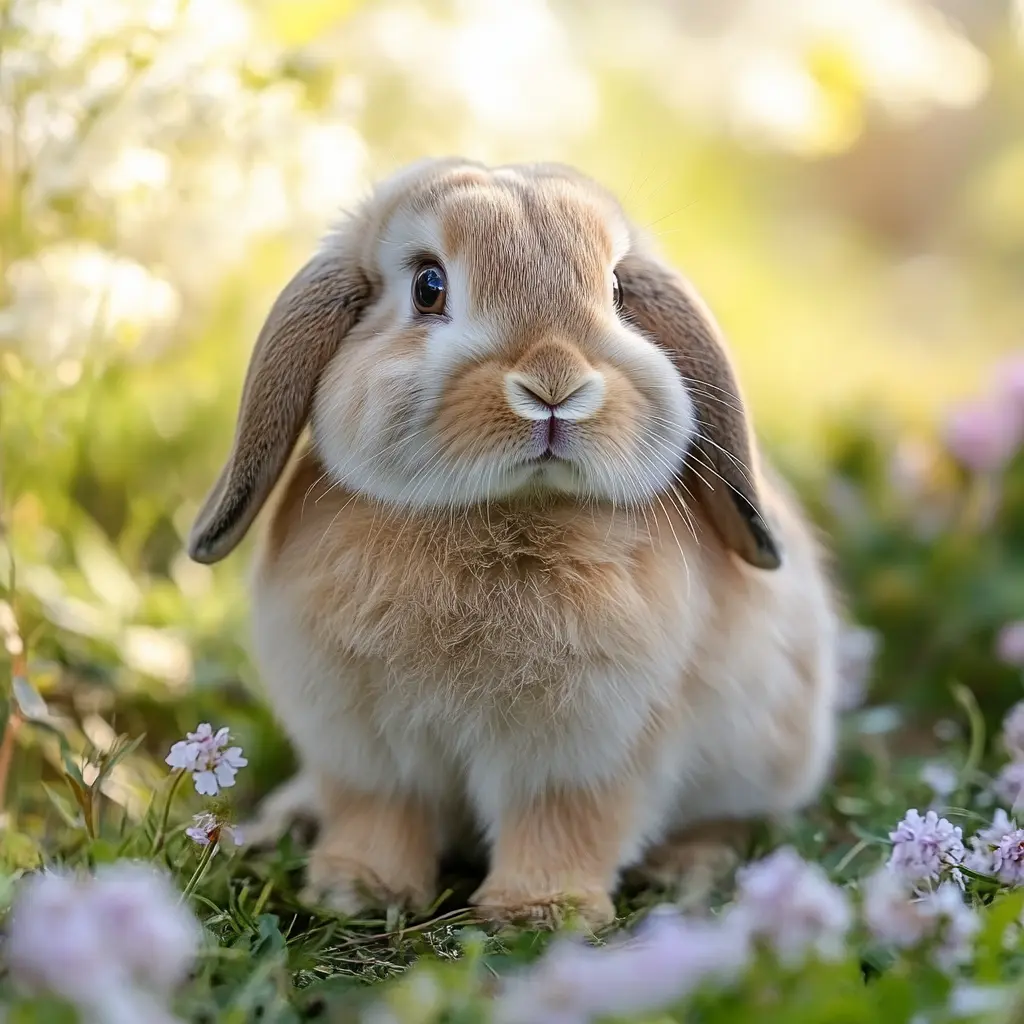
Keeping your Holland Lop healthy needs a proactive plan. Regular vet visits are key to a long life. These visits catch health problems early, keeping your pet in great shape.
Vet care is more than just check-ups. It’s about a health plan that covers everything for your rabbit’s well-being.
Vaccination Schedule
It’s vital to protect your Holland Lop from diseases. Your vet will set up a vaccination plan just for your rabbit. Important shots include:
- Rabbit Hemorrhagic Disease (RHD) vaccine
- Myxomatosis prevention
- Annual booster shots
Grooming Requirements
Good grooming is essential for your Holland Lop’s health. Regular grooming helps you:
- Spot skin problems
- Stop matting
- Keep an eye on their health
| Grooming Task | Frequency | Purpose |
|---|---|---|
| Brushing | 2-3 times weekly | Remove loose fur, check skin health |
| Nail Trimming | Every 4-6 weeks | Prevent overgrowth and potential injuries |
| Ear Cleaning | Monthly | Prevent ear mites and infections |
Health Monitoring Tips
Early detection is key to extending your Holland Lop’s life. Watch for these warning signs:
“A rabbit’s health can change quickly. Regular observation is your best defense.” – Veterinary Rabbit Specialists
- Changes in eating habits
- Unusual lethargy
- Digestive irregularities
- Respiratory changes
By being alert and keeping up with vet care, you can greatly improve your Holland Lop’s life span.
Signs of Aging in Holland Lops
As your Holland Lop gets older, you’ll see clear signs of aging. Knowing these signs helps you care for your aging friend better.
Physical changes are more noticeable in older Holland Lops. You might see:
- Reduced muscle tone and decreased mobility
- Graying fur around the muzzle and ears
- Slower movement and less energetic play
- Weight fluctuations
Behavioral changes are also key signs of aging. Decreased grooming habits can mean less flexibility and health issues. Your rabbit might also want to rest more and be less social.
“Aging is a natural process, and understanding your Holland Lop’s changing needs is crucial for maintaining their quality of life.” – Rabbit Care Experts
Other signs include changes in appetite and dental health. Look out for:
- Difficulty eating hard foods
- Reduced interest in hay or pellets
- Potential vision or hearing loss
- Increased sensitivity to temperature changes
Regular vet visits are key as your Holland Lop ages. These visits can catch and manage health issues early. This keeps your furry friend comfortable and happy in their golden years.
Breeding History and Genetic Factors
Understanding the genetic background of Holland Lops is key when looking at their lifespan. Good breeding practices are vital for their health and long life.
Impact of Genetics on Longevity
Genetics greatly affects Holland Lops’ lifespan. Some traits can lead to health issues that shorten their lives. It’s important for owners to know their rabbit’s genetic history.
- Inherited health conditions can impact overall longevity
- Genetic diversity helps reduce potential health risks
- Selective breeding can minimize genetic health problems
Choosing a Healthy Bloodline
Choosing a Holland Lop from a good breeder is crucial. Look for breeders who focus on genetic health and do health checks.
| Bloodline Characteristic | Potential Lifespan Impact |
|---|---|
| Strong Genetic Diversity | Increased Longevity |
| Minimal Inbreeding | Reduced Health Risks |
| Documented Health History | Better Predictability |
Genetic health is the foundation of a long and happy life for your Holland Lop.
When looking for a Holland Lop, ask about the breeder’s practices. Genetic screening and responsible breeding can significantly improve the factors affecting Holland Lop lifespan. Ask for health certificates and lineage to make a smart choice.
Mental Stimulation and Social Needs
Your Holland Lop rabbit needs more than just physical care. They need mental stimulation to stay happy and healthy. These smart rabbits need fun activities to keep their minds sharp.
“A stimulated rabbit is a happy rabbit” – Rabbit Care Experts
Social interaction is key for Holland Lop rabbits. They love being around people and other rabbits. Regular time with both humans and other rabbits is good for them.
- Daily playtime with human companions
- Interactive toys that challenge mental abilities
- Supervised interactions with other rabbits
- Rotating puzzle feeders and enrichment activities
To keep your Holland Lop happy for a long time, try these mental stimulation ideas:
| Activity Type | Benefits | Frequency |
|---|---|---|
| Puzzle Feeders | Cognitive Engagement | Daily |
| Gentle Handling | Social Bonding | Multiple Times Daily |
| Exploration Time | Physical and Mental Exercise | 1-2 Hours Daily |
Creating a stimulating environment helps prevent boredom and supports your Holland Lop’s mental health. Spend time getting to know your rabbit’s likes and dislikes. This will help you create the best mental enrichment plan for them.
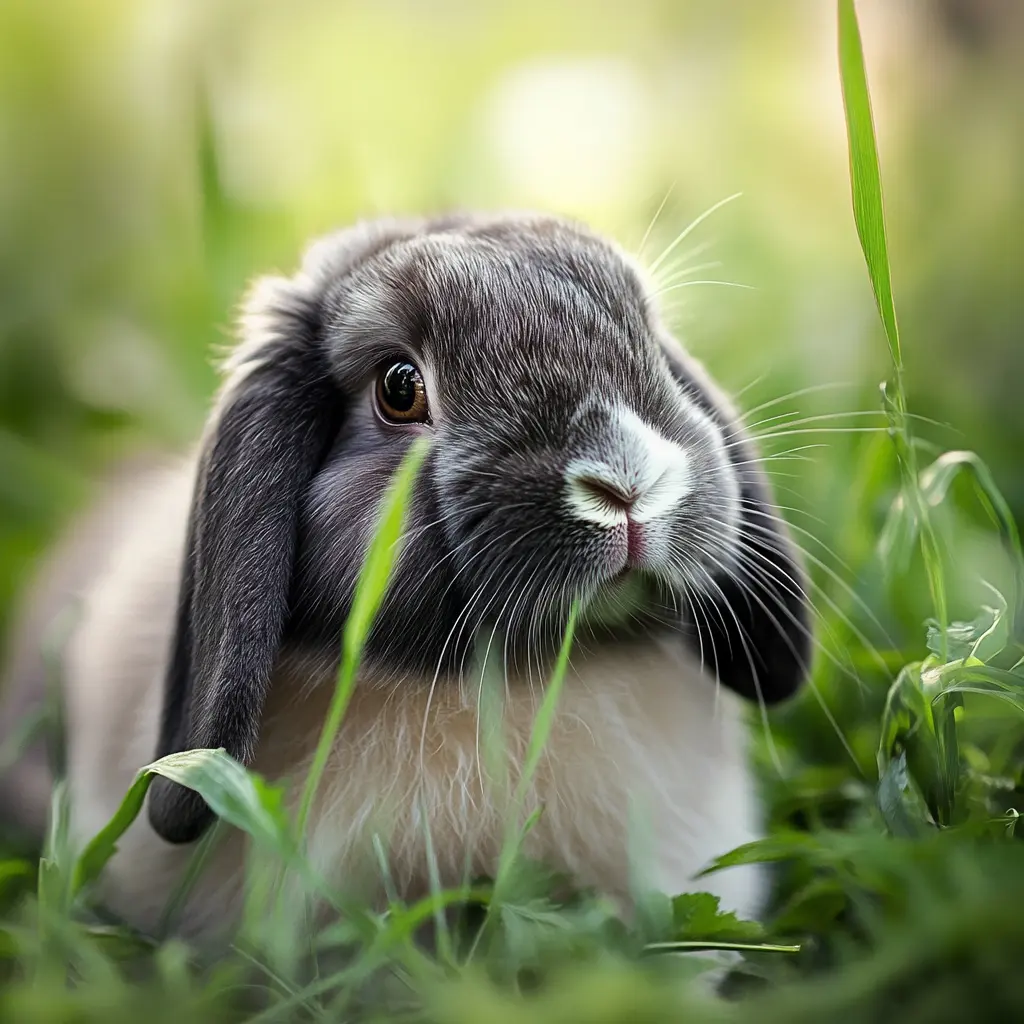
Environmental Stress Factors to Avoid
Keeping your Holland Lop safe from stress is key to a long life. Stress can harm your bunny’s health and shorten their life. Knowing and reducing these stressors can make your pet’s life longer and happier.
Temperature Considerations
Holland Lops don’t like extreme temperatures. They do best in temperatures between 60-70°F. Too hot or too cold can stress them out and harm their health.
- Provide cool, shaded areas during summer
- Use fans or cooling mats in hot weather
- Protect from drafts and cold winds in winter
- Maintain consistent indoor temperatures
Noise and Handling Stress
Rabbits are naturally shy. Loud noises and rough handling can hurt their lifespan.
“Gentle handling and a calm environment are key to a happy, healthy Holland Lop.” – Rabbit Care Experts
Social Stress Management
Social interactions are important for your Holland Lop’s mental health. Introducing new pets carefully and understanding their social needs can help reduce stress.
| Stress Factor | Impact | Recommended Action |
|---|---|---|
| Sudden Environment Changes | High Stress | Gradual Transitions |
| Loud Noises | Anxiety | Create Quiet Spaces |
| Inappropriate Handling | Physical Stress | Gentle, Consistent Interaction |
By reducing these stressors, you can help your Holland Lop live a longer, healthier life. This ensures your pet stays happy and well.
Conclusion
Caring for a Holland Lop is a rewarding journey. It requires dedication and understanding. Your commitment to their care directly impacts their quality of life. By following the care strategies in this article, you can help your furry friend thrive.
Every part of care, from nutrition to healthcare, is crucial. Paying attention to their unique needs and monitoring their health is key. Providing a loving, stress-free environment also helps.
Remember, every Holland Lop is different. While general guidelines are helpful, observing your rabbit’s specific needs is vital. Consulting with a veterinarian specializing in exotic pets will help you create the best care plan.
Your bond with your Holland Lop is about more than just longevity. It’s about creating a nurturing relationship filled with love and care. By investing time and compassion, you’ll support their physical health and create lasting memories.
FAQ
What is the average lifespan of a Holland Lop rabbit?
Holland Lop rabbits can live from 7 to 12 years. They need great care, the right food, and vet visits. Indoor rabbits live longer because they avoid predators and stress.
How can I help extend my Holland Lop’s lifespan?
To help your Holland Lop live longer, give them a balanced diet. This includes hay, veggies, and clean water. Also, take them to the vet regularly, make sure they exercise, and keep their environment calm. Toys and social time are also key.
Do male and female Holland Lops have different lifespans?
Male and female Holland Lops usually live the same amount of time. But, spaying or neutering can prevent health issues. This might help them live longer by avoiding reproductive cancers.
What are the most common health issues that can affect a Holland Lop’s lifespan?
Common health problems include dental issues, digestive problems, and infections. Ear mites and obesity are also common. Regular vet visits, a good diet, and a clean home can help prevent these issues.
How much exercise does a Holland Lop need to stay healthy?
Holland Lops need 3-4 hours of exercise every day. This can be playtime outside their cage, safe play areas, and toys. Exercise keeps them healthy and happy.
Are indoor or outdoor Holland Lops likely to live longer?
Indoor Holland Lops live longer because they’re safe from predators and harsh weather. They also get better care and more vet visits indoors.
What diet is best for maximizing a Holland Lop’s lifespan?
The best diet is 80-90% hay, fresh veggies, a bit of pellets, and always clean water. Avoid sugary foods and things toxic to rabbits. A balanced diet helps prevent obesity and keeps them healthy.
What are the signs of aging in Holland Lop rabbits?
Aging signs include less activity, fur changes, and muscle loss. They might also have dental issues, eat less, and move slower. Older rabbits need special care, a gentle diet, and more vet visits.
